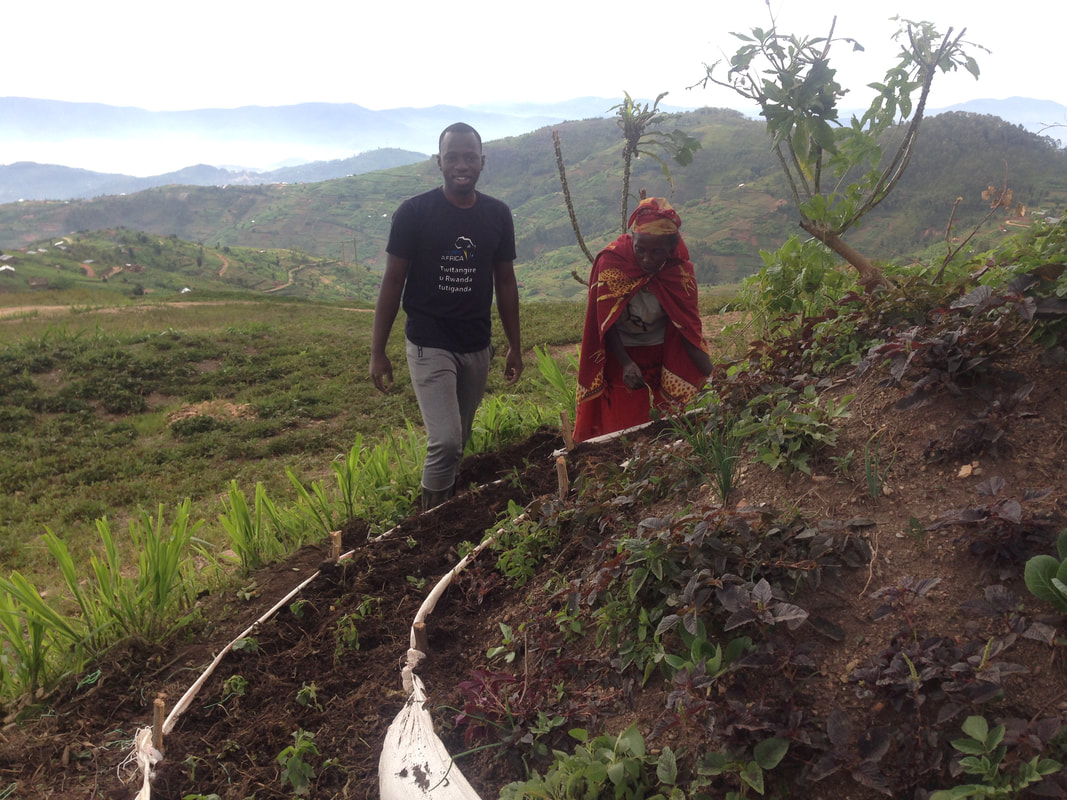Written by CorpsAfrica/Rwanda Exchange Volunteer Mr. Assane Seck
September 16, 2018: I can hardly believe that I am going to Rwanda. For many young Africans, particularly those who aim to be leaders in Africa, Rwanda has become a model for development and leadership. When I arrived at the airport around 1:30 a.m. and after getting my luggage, I noted that a police officer was looking at me very strangely. Without understanding why, I just took my bags and started moving toward the exit door.
At that time, he walked toward me, and with a smile, he gave me a pair of scissors. The scene looked strange to me but in a minute, I understood the scissor is to cut the plastic that surrounded my bag as protection. Yes, here, said the police officer, we are not allowed to touch the plastic. Before coming, I had read that Rwanda government has banned the use of plastic over the entire territory. But I did not realize until that moment that it was not a joke.
In the car going to the hotel, where I would spend a month during the PST, I discovered Rwanda for the very first time. At night there was almost nobody in the streets, except some guards here and there. My first impression: these streets are really very clean—I was wondering if people even live here! Yes indeed, I would understand later that I was actually in the cleanest city in Africa, and probably one of the most organized, too. Over the next month, I discovered very quickly that even if I was still in Africa, Rwanda is very different from Senegal. The streets are very clean, the air is pure, and people are respectful of the environment and established rules of life.
Two weeks after my arrival, on September 29, I discovered a name that would stay with me throughout all my stay: “umuganda.” Held on the last Saturday of each month, the umuganda is the day that is devoted to general interest works. Ministers, deputies, even the president is not exempt. All able-bodied people living in Rwanda must participate in this day of cleaning, maintenance of any kind for the benefit of public buildings or public places. It is a beautiful way to promote equality, the sense of duty and active citizenship.
After this time of learning and acquaintance with my colleagues and friends, after discovering the beautiful Rwandan landscapes like the Akagira Parc, the Kiuvu Lake or the Museum of Liberation, I would finally discover my village, where I would serve. On the road going to my site, the face of Rwanda transformed right in front of my amazed eyes. The greenery is striking and the trees majestic; sometimes at the bend of a road it seems that the mountains coexist and kiss with clouds. It feels like entering in the sky; that is how high we were.
Arriving in my new home was not easy; sometimes I had to go through mountain paths in the Ngororero District, Bwira Sector. However, I had hardly put down my luggage when I went out to check the view. It is here that I understood why Rwanda is called the land of one thousand hills.
There is not a centimeter where you can look without seeing an infinite mountain alignment. The mountains give the impression of jostling one another, each wanting to give a spectacle of raw beauty of the wilderness. After a week, a month, months, I always looked with such enthusiasm and astonishment at this panoramic vision of mountains that touch clouds, mixed with natural greenery such as in an art painting.
Everybody knows Rwanda as the country of one thousand hills, but for me it is also the country of one thousand possibilities, the country of one thousand dreams. It is the country where you can learn that the past is not a fatality, where patriotism and citizenship are not just words on paper, the country where I really came to believe that Africa is the future.

